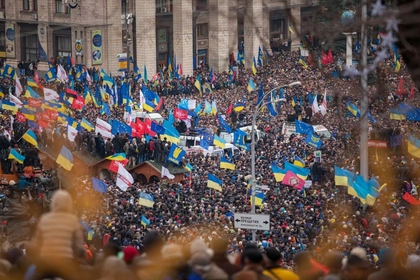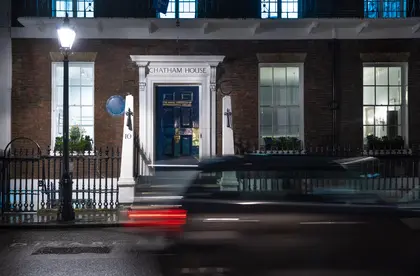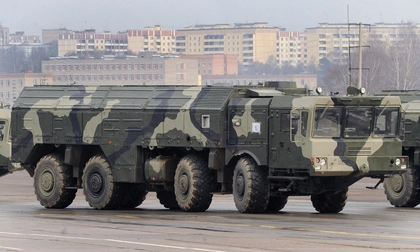The UK’s celebrated think-tank Chatham House issued a report on June 27 titled: How to end Russia’s war on Ukraine - Safeguarding Europe’s future, and the dangers of a false peace.
Kyiv Post is publishing the introduction and a summary.
JOIN US ON TELEGRAM
Follow our coverage of the war on the @Kyivpost_official.
Introduction
As Ukraine continues to fight to liberate its occupied territories and eject Russian invaders, its Western backers debate the likely endgame for the war and its aftermath. The international response to Russia’s full-scale invasion of Ukraine, while impressive in many ways, remains inadequate to the task and dangerously wobbly. Russia’s wider threat to the rules-based international order is also insufficiently acknowledged.
Many proposals have been put forward for how the conflict could, or should, be brought to a close. Some, though well-intentioned, involve concessions that would effectively appease Russia, betray Ukraine and endanger Europe. Persistent calls for a ceasefire or ‘negotiated settlement’ to end the fighting without tackling its underlying cause – Russia’s ambition to eliminate Ukraine as we know it – will do no more than reward the aggressor while punishing the victim.
This multi-author report takes nine commonly espoused ideas for quick fixes or objections to bolstering assistance to Ukraine, and weighs them against both current reality and their long-term consequences. The unanimous conclusion of the authors is that the only outcome to the war that can safeguard the future security of Europe is a convincing Ukrainian victory – hence, Western military support to Kyiv should be redoubled before it is too late.

Tsikhanouskaya Honors Ukraine’s Day of Dignity and Freedom
Summary
· It’s now or never for Ukraine. A protracted or frozen conflict benefits Russia and hurts Ukraine, as does a ceasefire or negotiated settlement on Russia’s terms. If Ukraine is to avoid these outcomes and turn tenacious defence and incremental battlefield gains into outright victory, it needs far more ambitious international military assistance than it has received to date. This report presents the case for an immediate and decisive increase in such support, seeks to dispel overhyped concerns about provoking Russia, and counsels against accommodating Moscow’s demands.
· Ukraine’s need is all the more pressing because the United States – the principal donor of financial and military aid to Kyiv – is entering an election cycle that could soon reduce US foreign policy engagement or ultimately result in a more inward-looking administration in Washington. Increasing the West’s supply of weaponry for Ukraine now would, in addition to helping ongoing military actions against Russian forces, provide a measure of insulation against any future weakening of US solidarity.
· The argument for Western military and diplomatic resolve is reinforced by the impacts of Russian aggression beyond Ukraine itself. Not only is European security under threat, but the viability of the rules-based international order is potentially at stake. With this full-scale invasion, Russia has directly challenged arrangements that have helped to secure peace for over 70 years. The world will be safer with Russia defeated soundly on the battlefield than with an ambiguous outcome that, for instance, institutionalizes Ukrainian territorial losses.
· The search for peace is fraught with pitfalls. Any temporary solution that preserves, or partially preserves, the battlefield status quo will buy time for Russian forces to regroup after recent heavy losses and prepare for the next onslaught, while leaving Ukraine enfeebled and less than fully sovereign. While a diplomatic solution seems attractive to many in the West, and may suspend hostilities for a period, it would merely postpone an essential reckoning with Russia and is pointless without an achievable long-term plan for Ukraine’s security in place.
· Any such plan must set out the conditions for, and pathway towards, a durable peace on Ukraine’s terms. It must enshrine the principle of respect for the country’s sovereign independence and pre-2014 territorial borders. It must also envision future security and political guarantees. The plan’s chances of success will be greater if it supports Ukraine’s aspirations for NATO and EU membership. NATO and other international allies of Ukraine will need to develop this plan jointly with the Ukrainian government, and must remain committed to implementing it.
· A stalemate in the war or military setbacks for Ukraine would increase pressure, including potentially from Western allies, for compromise. Calls for ‘pragmatism’ – often a euphemism for granting Russia its demands – are even now proliferating. To counter narratives that might lead in this direction, this report analyses nine commonly articulated fallacies about the approaches the West should adopt – and avoid – in the search for peace. These fallacies broadly fit into two categories: ideas on accommodating Russia’s stated interests to accelerate a peace agreement; and objections to increasing military and other assistance to Ukraine.
· Although often well-intentioned, and despite their prominence in policy commentary as serious options for ending the war or avoiding escalation, such ideas are misguided, we argue. Most current suggestions for a settlement would, if implemented, crystallize Russian territorial gains and encourage further aggression in the future. Similarly, restraint in backing Ukraine for fear of provoking Russian reprisals is misplaced. By ignoring the true nature and agenda of Moscow’s regime and the futility of hoping to engage Vladimir Putin in negotiations in good faith, most ‘realist’ arguments for mitigating risk are in fact less realistic than the name suggests.
· Backing a full and unambiguous Ukrainian victory is therefore essential not only on moral but also practical grounds. Although recent increases in Western supplies of munitions and other hardware are welcome, the fundamental solution to many of the problems raised in this report remains: that Ukraine still needs a massive influx of weaponry. Without it, Ukraine will cease to exist as a sovereign state and an emboldened Russia will continue its imperialist campaign of expansionism against neighbors and aggression against perceived adversaries, democratic and otherwise, the world over. In the longer term, backing Ukraine will serve to deter other aggressors while potentially sowing the seeds for positive political change in Russia.
See the full report and details about the authors here.
You can also highlight the text and press Ctrl + Enter






